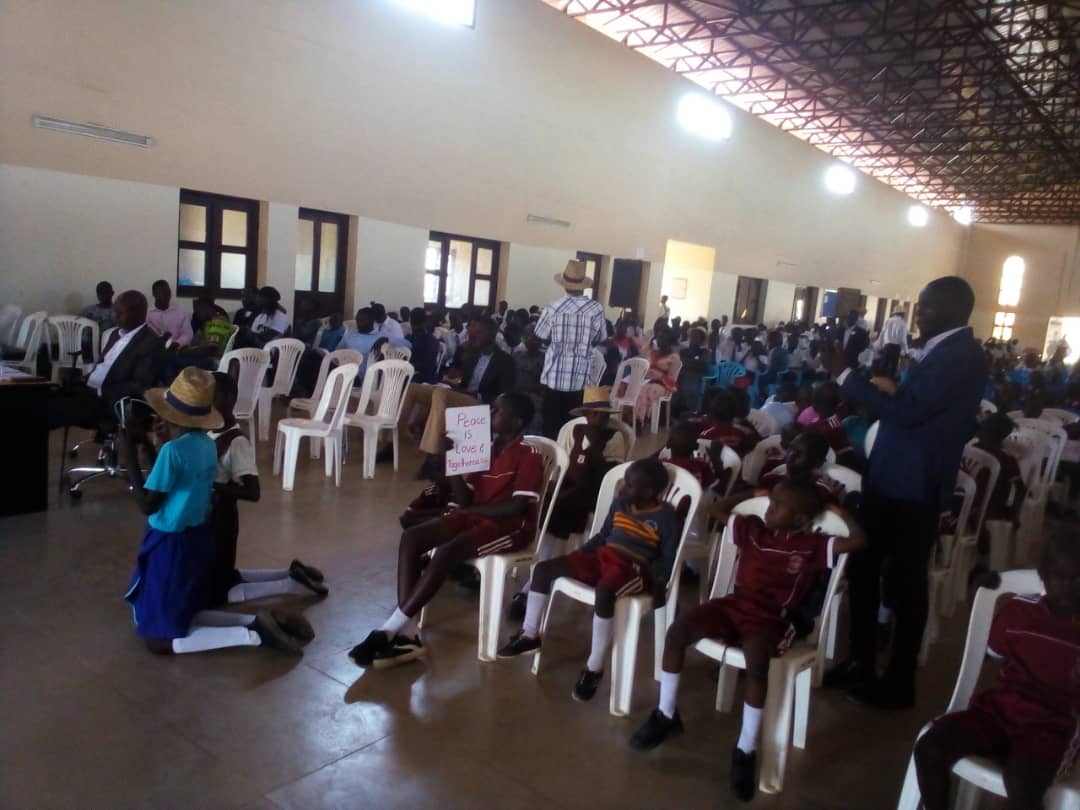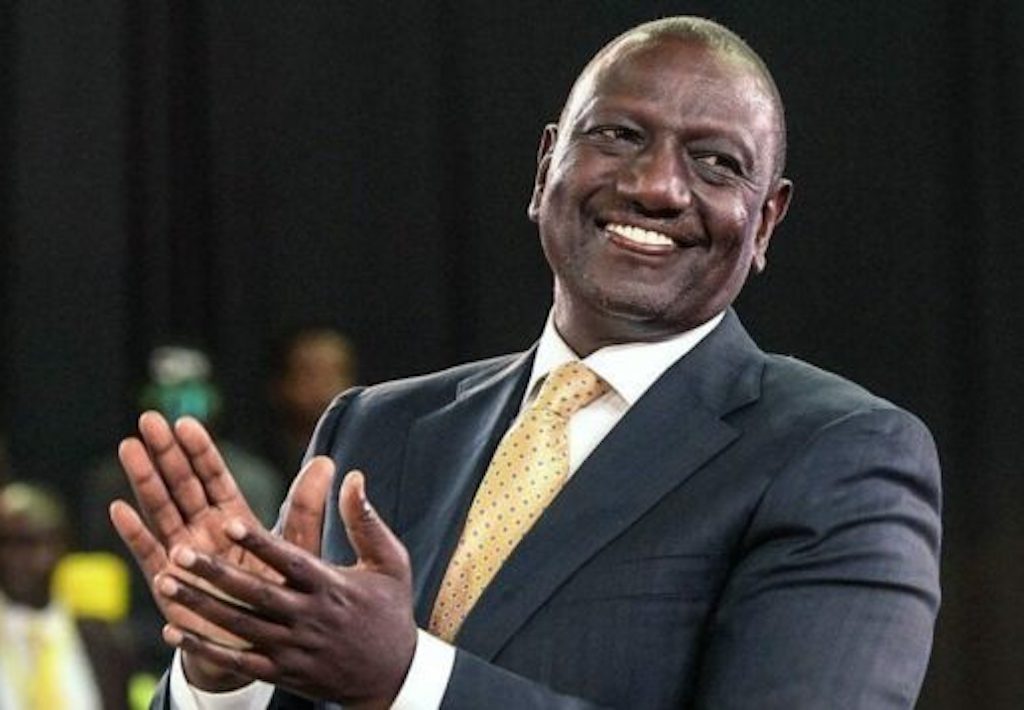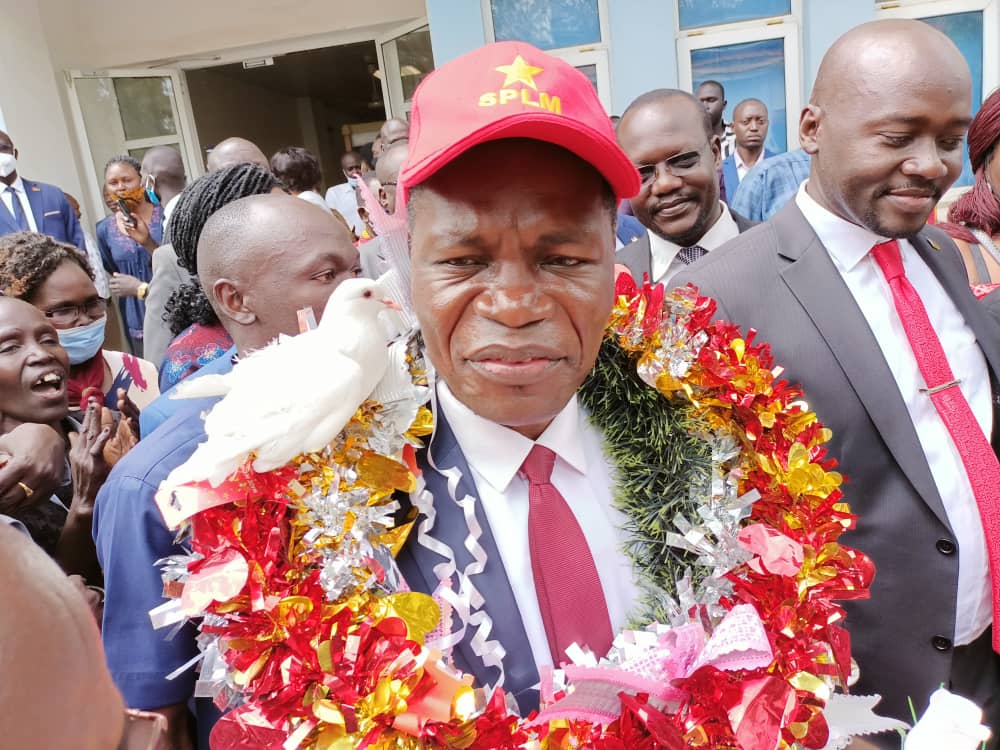
Sudan peace deal fragile due to lack of funding and political uncertainty: experts

Mediators have said the Juba peace agreement signed in August 2020 to end decades of conflict in Sudan has stalled largely due to political uncertainty and lack of international support.
Dhieu Mathok Diing, the South Sudan minister of investment and member of the mediation team, said on Monday that the ongoing political uncertainty created by disagreement over power-sharing among some of the signatories is hurting the implementation of the peace deal.
“Some of the major challenges that we know is the political instability in Sudan, the government is not stable there are a lot of political turmoil in the country, and if these things are not resolved then it is going to be very difficult for the agreement to be implemented,” Mathok told journalists during the opening of the five-day workshop to review the peace agreement in Juba.
The agreement signed between the Sudan Sovereign Council led by Abdel Fattah Al-Burhan and various opposition groups has also been slowed down by lack of funding from the international community.
The Sudan political crisis deepened after Al-Burhan, declared a state of emergency on Oct. 25 2021 and dissolved the Sovereign Council and the transitional government which was headed by Prime Minister Abdalla Hamdok.
“We have seen also there are challenges of funding, there are no resources which are supposed to be used to implement the security arrangement,” Mathok said.
He said the agreement signed with opposition groups from Darfur region alone requires funding to cover for resettlement of refugees and internally displaced persons (IDPs) and rehabilitation of the affected areas for a period of ten years.
“We have seen also there are differences among the signatories to the peace agreement, since the time they went to Sudan there are a lot of divisions among themselves, we hope that this workshop which is being organized by the government of the republic of South Sudan will help in creating harmony and unity among them,” Mathok said.
Salwa Adam, the Secretary General of Sudan People’s Liberation Movement-North (SPLM-N) faction led by Malik Agar in Blue Nile region, said the political situation in Khartoum has affected the peace implementation because there is no legitimate government at the moment.
In December 2022, a limited selection of Sudan’s military and civilian political actors signed a Framework Agreement (FA) in order to re-launch the country’s transition to civilian government, but this has not yet materialized.
Adam added that failure to establish joint monitoring and evaluation mechanism has for example, caused resurgence of conflict in Sudan.
Yassir Adha, representative of the Sudan Sovereign Council expressed optimism on the peace process succeeding if hold-out opposition groups like SPLM-N sector led by Abdel Aziz Al-Hilu, and Sudan Liberation Movement under Abdul Wahi Al-Nur join the peace process.
“There will not be comprehensive peace agreement if there are hold- out groups still holding guns. We believe this is our duty to promote peace as brothers and sisters,” said Adha.
Suliman Mohammed Dibelo, Chairperson of Sudan Peace Commission, said the agreement is very ambitious and the cost of it’s implementation remains very high.
“The international community was giving a lot of promises, but they were never delivered, we attended conferences in Berlin, France, Saudi Arabia and in Sudan all in these conferences pledges were never delivered,” said Mohammed.
“We opted through the Sudanese government to implement the peace agreement from our own resources; currently many issues that have been of problematic nature have been resolved,” he disclosed.
Mohammed cited the developments in Blue Nile region, where he said refugees and IDPs have already started returning to their homes due to tranquility.
“I think we have a very successful story, the security agreement has almost been done the refugees and IDPs are now returning home in Blue Nile, the federal government there has been installed by the SPLM-N,” Mohammed said.
He however, conceded that communal clashes in Western Darfur’s El Geneina still pose serious challenges for peace to prevail in the region.
Mohammed expressed hope with the recent framework agreement reached between the Sudan Sovereign Council and civilian opposition members.
“Sudanese people of different political factions have now opted to reach an agreement, and we hope when they reach an agreement a government will be installed, and the ministers will start acting on implementation of different items in the Juba peace agreement,” he said.




































